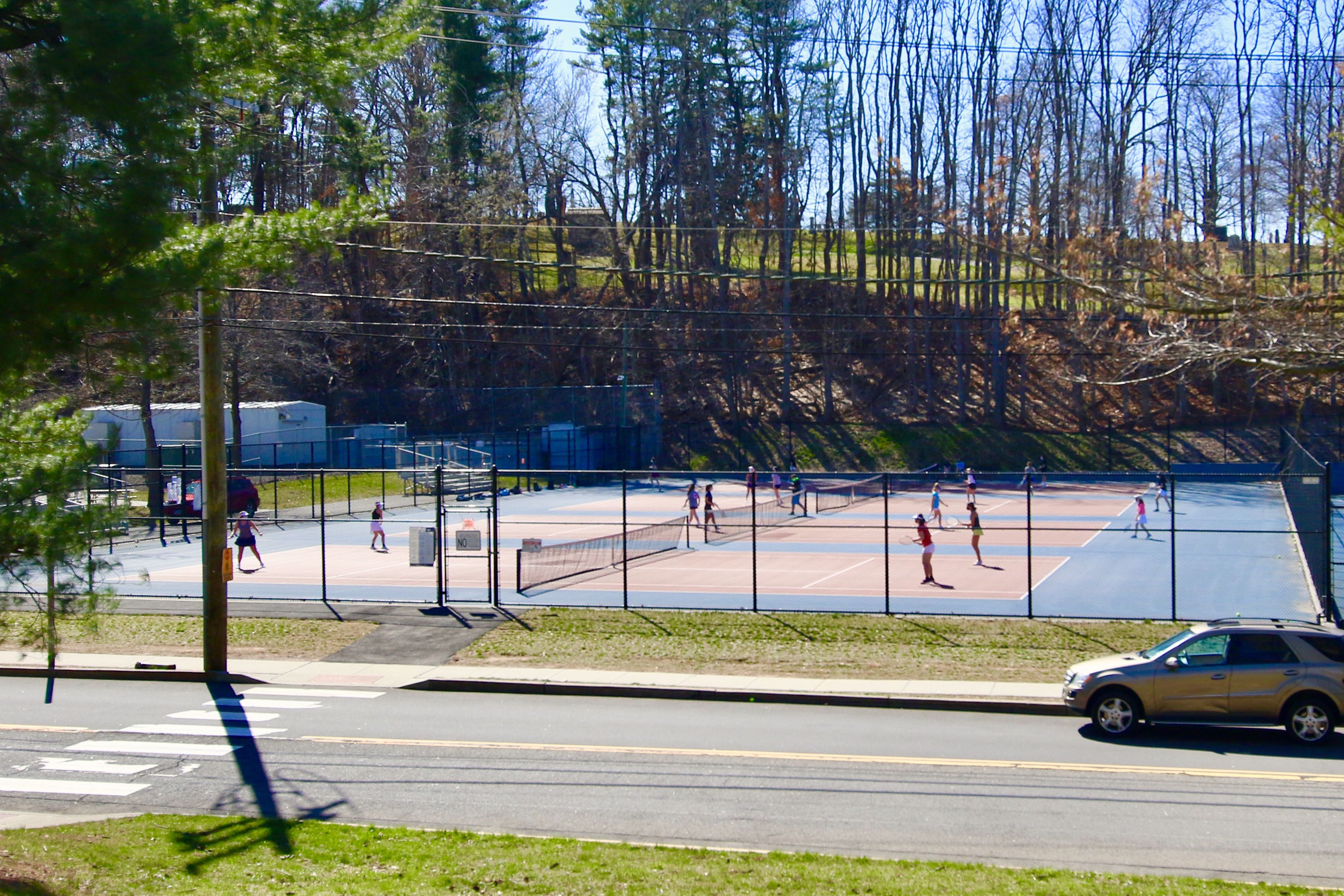
c/o Avi Friederich, Staff Photographer
The University’s decision to allow spring sports to return to limited competition was met with mixed responses from many who expressed concern about the potential risk of exposure to COVID-19 from visiting teams. Nonetheless, after a succession of negative tests among athletes and coaching staff, on Saturday, April 3, game-day dawned once again: University spring sports teams prepared to compete for the first time in over a year.
Curious to see what a sports game might look like in the midst of a pandemic, I headed down to the tennis courts on Vine Street with some friends to watch the men’s tennis team take on Williams College. We joined a group of some thirty fans in the stands, all of whom were dutifully masked and maintaining social distance, most of whom were cheering loudly for the Cardinals.
While the men’s tennis roster was looking rather slim, with multiple players missing due to various COVID-19 and non-COVID-19 related factors, the team was able to field the standard three doubles teams and six singles matches to compete against the Williams Ephs. As usual, their coaches joined them on the courts, now at a careful distance.
Unfortunately, the Wesleyan tennis team did not find success on the court. They ceded the match 1-8, with their only (still electrifying) victory coming from Noah Lilienthal ’22 and Ben Mitchell ’24 at number one doubles. Williams bested the Cardinals at the two and three doubles positions and across the board in singles, with Mitchell’s 5–7, 3–6 singles loss constituting the narrowest defeat for Wesleyan. However, regardless of the scores and the outcome, the match represented a triumph in other ways.
First and most importantly, both teams were able to cultivate an environment that followed COVID-19 protocols, with masking on both sides of the net and social distancing between teammates and from the other team. It was oddly sweet to see opponents exchange a congenial elbow bump after finishing their match, a gesture appropriate both to the sport and to the moment.
Second, it was delightful for me, even as an observer, to be able to partake in competitive sports once again. As a college athlete myself, a member of the women’s squash team, I have missed the structure of practices and preparation for a match, spending time in the locker room with my teammates, the rush of competing against an opposing university, the stakes, and the drama. It is a strange feeling to at once mourn the loss of practices and matches while also not wishing for their pre-emptive return, knowing that such joy would put my teammates, our opponents, and myself at risk while also adding to general anxieties about a COVID-19 outbreak.
My team has had the privilege of being able to return to practice safely this semester, thanks to the assurance afforded by twice-weekly testing in combination with masking and social distancing. Still, preparation for a competition season that won’t arrive until November makes finding motivation more difficult. I satiated my craving for live sports with invested viewing of March Madness and the UConn women’s basketball team, which proved fulfilling all the way through their loss to Arizona in the final four on Friday (Aari McDonald played a tremendous game). However, watching Division I players compete mask-less through the TV screen felt distant, surreal, and precarious, with the potential for COVID-19 induced disruption at any point.
Therefore, to see live sports, and Wesleyan sports in particular, felt like a true hallmark of the country’s progress toward safely controlling and fighting COVID-19. Cheering for Wesleyan, wishing vehemently for the downfall of Williams, knowing I was safe in the fresh air and my mask, I could envision a triumphant return to athletics, and itched for the opportunity to compete with my own teammates against our opponents.
Post-pandemic, I hope that my fellow athletes will approach sports with a new sense of gratitude for the game, a focus on the artistry and beauty of playing a sport, and perhaps less concern for the scoreboard. Moments in the locker room and on the court, victories, and losses are each a unique privilege and component of my life that I didn’t fully appreciate until they disappeared. When next November rolls around, I know that I will take to the court with excitement, and I hope not to lose sight of the singular pleasure of competing in college sports.
Emma Smith can be reached at elsmith@wesleyan.edu.
-
Tennis Mesh